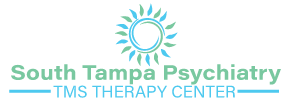Co-occurring disorders are potentially confusing for some clients or their family members when they do not fully understand the nature of co-occurring disorders. Determining whether you or your loved one has conditions that can co-occur first requires an assessment. Mental health services, such as those offered through the South Tampa Psychiatry program, is often the first step towards recovery. Contact our team today at 866.273.5017 to learn more.
What Disorders Can Co-Occur?
This question, regarding which conditions can co-occur, requires an in-depth explanation. When a person has a dual diagnosis, two or more disorders must be present for a professional with expertise in treating mental health conditions and substance use to provide treatment. There are many factors related to disorders that can co-occur. This issue may lead to confusion or misinformation about co-occurring or dual diagnosis disorders. In fact, it may lead to some clients not receiving the help they need from a medication-assisted treatment program and a dual diagnosis disorders treatment program.
What You Need to Understand About Co-Occurring Disorders
There are several points regarding the disorders that can co-occur, including:
- The individual must have at least one mental health disorder
- An individual also must have an addiction to at least one form of drug or alcohol
- The person may need to go through a detox program prior to entering a treatment program
- Appropriate treatment programs must include treatment for both the addiction to alcohol or other drugs and treatment for the mental health disorder
- Individuals with co-occurring disorders come from all age groups of adolescents and adults and from all walks of life
- There are treatments available for co-occurring or dual diagnosis disorders
Therefore, disorders that co-occur include both a mental health disorder and a substance use disorder. People diagnosed with two different mental health disorders, such as anxiety and depression, do not have co-occurring disorders. Similarly, individuals that have an addiction to two or more drugs, such as alcohol and opioids, are not diagnosed as having co-occurring disorders. This condition is called poly-substance abuse. All of these conditions require treatment from a specialized treatment program.
Individuals with an addiction to alcohol and bipolar disorder diagnosis, for example, are considered to have co-occurring disorders. Another dual diagnosis disorder example is the individuals with an addiction to cocaine, who also have a diagnosis of depression.
Treating Co-Occurring Disorders
Detox programs offer the first step towards recovering from the devastating effects of experiencing co-occurring disorders for many people. The caring professionals at South Tampa Psychiatry understand your addiction and mental health treatment needs. The staff helps patients understand what happens during treatment and the benefits of completing a dual diagnosis treatment center program.
You can start your recovery today. Learn how South Tampa Psychiatry can help you start your recovery process today.
Take Charge and Learn More at South Tampa Psychiatry
You can take charge of your life today. You do not have to face the co-occurring disorders alone or feel that no one understands what you are going through on a day-to-day basis. The South Tampa Psychiatry team members understand and are here to help you or your loved one regain control. We’ll also teach you to learn how to live a calmer, more focused lifestyle while receiving dual diagnosis disorder treatment services.
Learn more from addiction treatment experts about how to start your life free of drugs, including alcohol, when you have co-occurring disorders, or even if you have only addiction issues.
Contact us at 866.273.5017 to learn more about our detox services and addiction treatment program options that are available to you. If you prefer, you can use our convenient contact form to get started on your recovery today.







